Avoiding the Quagmire in Your First Year as a Guide
I am a fishing guide and charter captain. That makes me a professional – I guess – whatever that means. I’m new to the business so I am not an expert in the industry. We just started our business last summer. So the only label I can give myself at this point is that of a student. No matter how renowned they are, all the great guides I’ve met or read about over the past dozen plus years of fly fishing, still consider themselves students of our passion. As a student, I wanted to capture part of my journey this past year and offer some lessons learned.
While trying to get our business up and running, I’ve had numerous conversations with people whom I consider my mentors. The most frequent guidance I received to date is the following: be responsible in promoting your business, know every aspect of your fishery, don’t let success get to your head, and realize that no matter how well you balance the first two, there will always be people who take issue with you. I’ve yet to see this guidance written somewhere, except in some books and articles that generally cater to entrepreneurs who are just starting out. I’d like to change that.
As I write this, I will do my best to come across as critical of our business – not critical in the way that most people understand the word but in the sense that I will reflect upon what we’ve done in the past 6 months since starting up from multiple points of view. Let’s call this process reflective skepticism. Although what will follow will come from a TOTALLY humble point of view, some will interpret it as arrogant and that I don’t “rate” writing about the topic because we are a new guide service. I’m cautiously optimistic these individuals will be a minority.
Hopefully this piece will help inform the decisions of other new guides just starting out – both at a shop or on their own. However, there will undoubtedly be some old hats and anglers who don’t guide with contrary ideals. Unfortunately, when some of these people read this, no matter how logical or compelling it is, they will still hold the same beliefs and will not be open to reflecting on how or why they think the way they do. Honestly, I hope that’s the case as it will only prove the points I will try to make. Here we go:
Be humble
Because of my background as an officer in the United States Marine Corps, I’m used to being humbled. Throughout my career in service, I’ve been humbled countless times by people much smarter than I and learned from all of them. From positions of strength and weakness, I tested my boundaries and grew every time – treating every experience as one from which I could learn.
The rank structure of our armed forces breeds this respect for authority (read more experience) into us from basic training – know your place, learn from your elders, play to your strengths, improve upon your weaknesses, and constantly seek opportunities to take initiative and grow. If you are a armed forces veteran just starting out in this business, apply these aspects of your former life into your business BUT don’t think that just because you’re a veteran other guides or local anglers will respect you.
Although no formal rank structure exists in the guiding and outfitting world, the principles of growth in a hierarchy remain the same. I use the term “hierarchy” because; let’s face it, there is one. Guides earn a positive reputation in this business through years of experience, a loud voice for advocacy, a strong client base, and a drive to innovate. If “fame” exists in this business, those guides that master these pillars elevate to the status of experts. The only people you probably should come off as an expert to in your first years of guiding are your clients – and even then, if you teach them or bond with them on the water, they quickly appreciate that mother nature can easily humble all of us.
When you’re starting out, you should always consider the opinions of senior guides in the area as their experience puts them in a position of strength. It would be great if these guides acted as mentors. Some will and others won’t. Those that do act as mentors will reach out to you to provide positive reinforcement for things you’re doing well and try to right your course if they see a problem with the way you conduct yourself. Those that don’t act as mentors will likely be ambivalent, or worse, talk trash behind your back. If this unfortunate set of circumstances is the case, approach them humbly, hear them out, and learn from the discussion. If nothing changes, at least you tried to understand their viewpoint and learned something in the process.
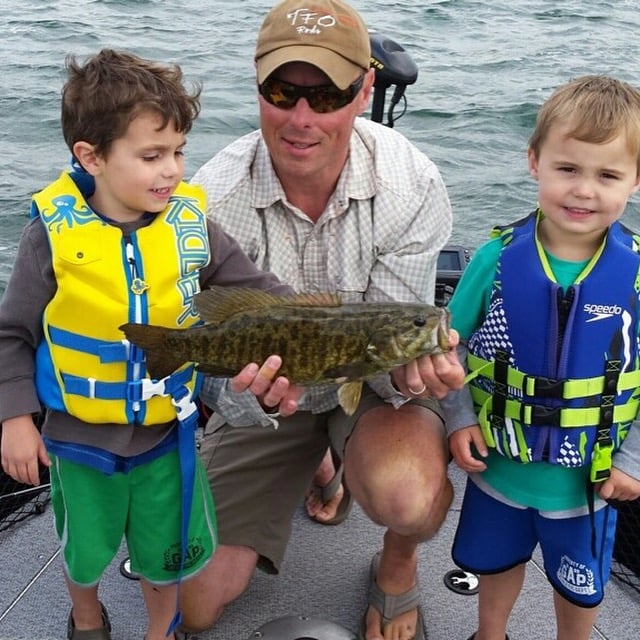
A little time spent spreading knowledge to the next generation
Do Not Exploit the Fishery
This should go without saying but if you want to be able to continue to work in this business, your fishery has to last. There is nothing wrong with trying to bring people into the area. There’s also nothing wrong with trying to expose non-anglers in the area to what’s going on in their backyard. Responsibly showing off your fishery, in more cases than not, will generate positive exposure that will aid in conserving the fishery. However, there has to be balance. A balance that doesn’t piss off too many of the old hats that consider the fishery “theirs” while allowing you to grow your business.
You might be thinking, “So what’s this guy’s definition of responsible?” If you are going to showcase the region, one suggestion is to show everyone the well-known spots where the weekend warriors go. If you fish with clients in areas that are less well known, be careful what you post on social media and on your blog. Crop or blur backgrounds in pictures to prevent others from blowing up these locations. You should also gauge your clients – are they the type of angler that is just hiring you to learn more about the area so he/she can fish it without a guide? If so, take precaution when deciding where to fish that day.
No matter how skillfully you approach achieving this balance, there will always be those that believe guiding is an exploitative trade. They won’t consider the fact that you are passionate about teaching others about the bounty of your region and how important it is to conserve it all. They will also fail to consider that you willingly chose this path, full knowing there is little money in this trade and in turn, invited struggle in your efforts to support your family or start one for that matter. If you address these notions with the people who hold adverse views of guiding, some will understand and some won’t. BUT, your family and friends will love you for it knowing you are pursuing your passion. Bottom line, you cannot please everyone in this business so get used to it.
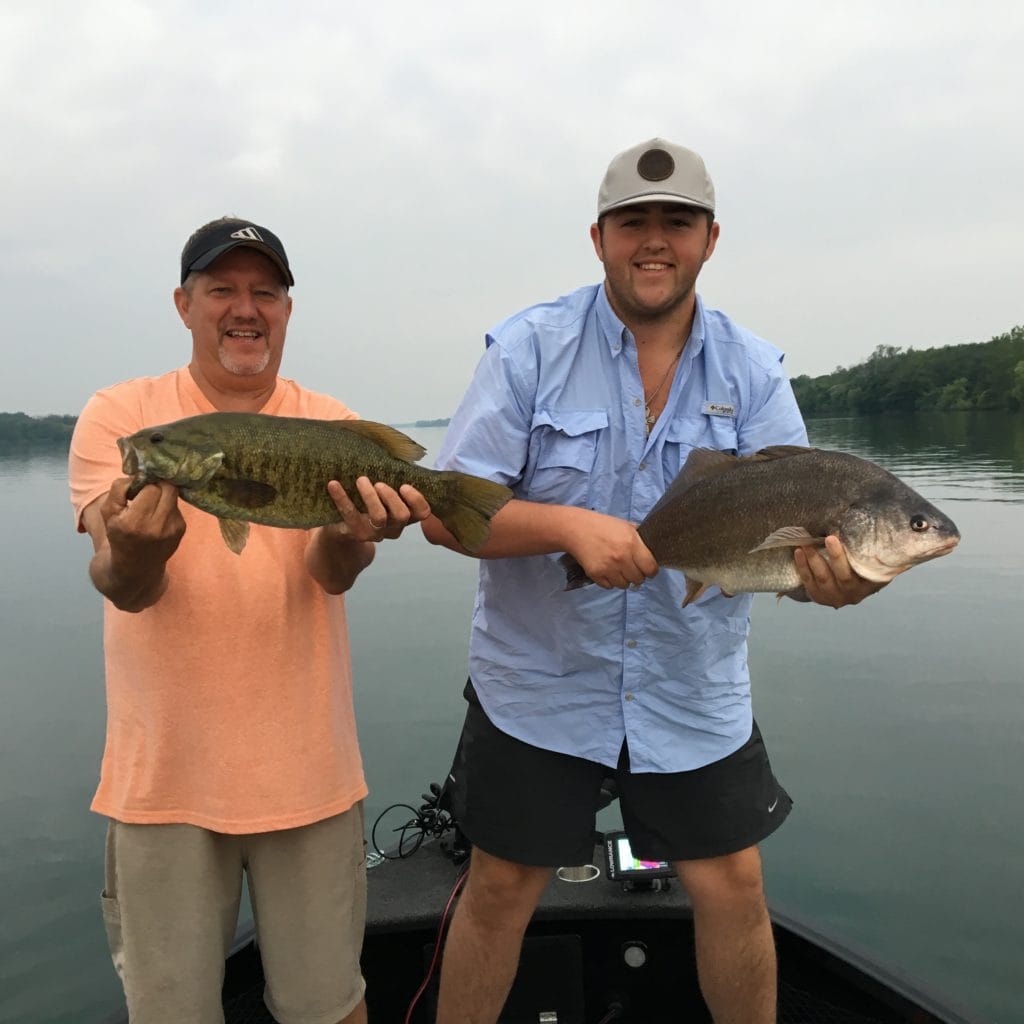
Classic Warm Water Double – Taken at a Well Known Spot
Find a Mentor – or at a minimum, study
Keep in mind that I am 38 years old, I have a family, I am a decorated combat veteran and bronze star recipient, I’ve been a leader to many warriors over the years. I make these points not to brag but to give some perspective – even with all that life experience, I have mentors in the guiding business and everyone should.
One of whom is Ron Meek at Sweetwater Travel. Ron runs their guide school and has travelled the world establishing lodges at places all of us now dream of visiting. First and foremost, he cares about the industry and bettering those individuals that will help it grow into the future and has dedicated his life to teaching this upcoming generation.
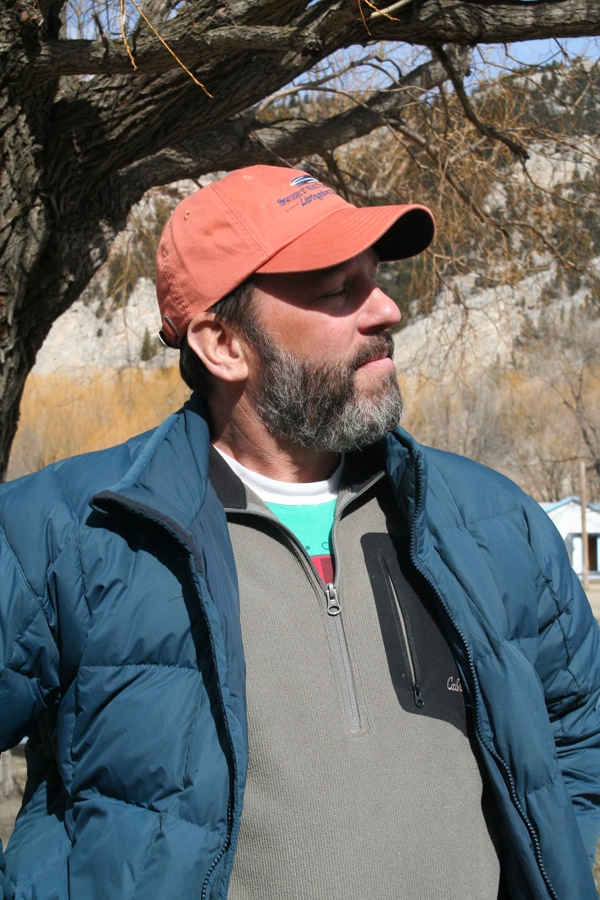
Ron Meek – Director of Sweetwater Guide School
Another mentor of mine is Blane Chocklett. As a devoted father and husband, he taught me about the balance mentioned above and added the pillar of family into the dynamic. He developed a fishery and a guide service from the bottom up – monumental tasks – and was lucky enough to have amazing mentors of his own. He’s considered to be one of the most innovative fly tiers of this generation – all fueled by a desire to be a better angler.
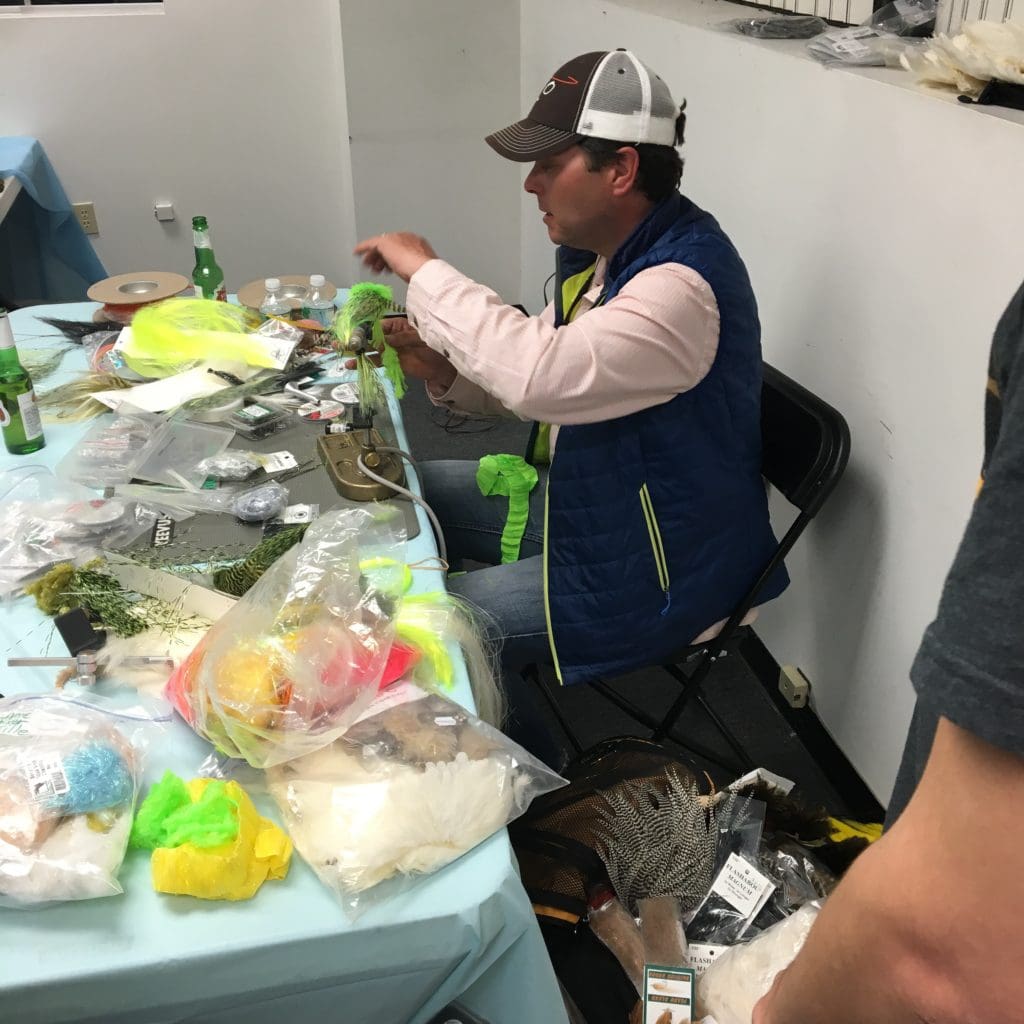
Blane Chocklett at Work
Mike Schultz is another individual in the industry whom I admire. Aside from starting a highly successful fly shop from the bottom up, he also created a fishery in Southeast Michigan. He explored it, developed ways to fish it, got it dialed in, made it extremely attractive to potential clients, and built a shop around it. Oh yeah – he’s younger than me and has a family too!
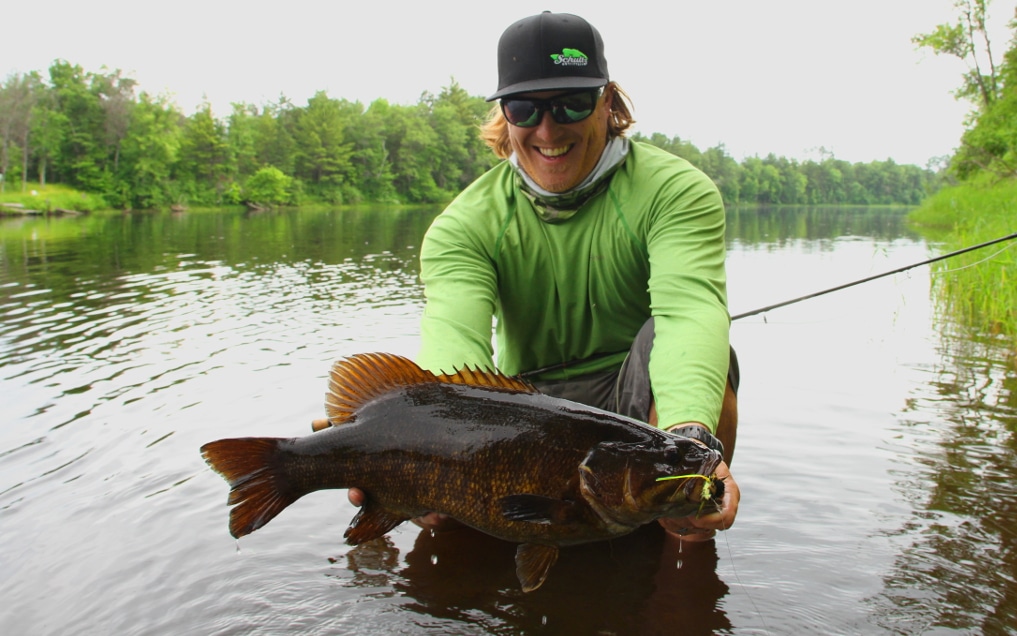
Mike Schultz in his glory
Colby and Brian Trow are also guides/outfitters that I admire. Like Mike Schultz, they developed a fishery in central Virginia. In addition, they run a highly successful shop, are huge advocates for conservation, pillars in the industry, and show an immense amount of support to veterans. Both also do an amazing job of balancing all of this with family life – true examples of how great this industry can be to those who give it their all.
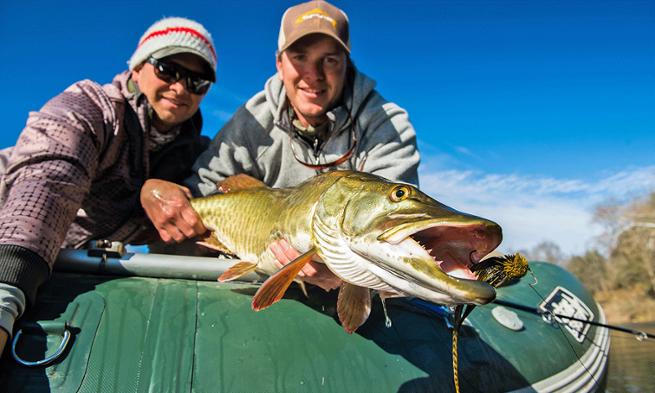
The Trow Brothers, Colby (l) and Brian (r)
Ron, Blane, Mike, and the Trow brothers aren’t from the area where I guide – I was just lucky enough to meet them in the years prior to us starting up our guide service and have remained in touch with them ever since. There are also local fly fishing professionals such as Vince Tobia, Rick Kustich, and Nick Pionessa from whom we sought advice out of respect for their knowledge and experience.
We also reached out to charter captains and industry professionals based in our area like Jim Hanley, Bill Hilts, and Larry Jones, whose primary business is in conventional tackle charter trips. These gentlemen have been active in this area since I was a kid and represent a wealth of knowledge beyond any fly angler in the area. We were pleasantly surprised when these gentlemen welcomed us with open arms and continue to offer their support and guidance to this day. They are all true patriots and who are staunch advocates for the region and want to see the progress they made passed off to the next generation so we can continue to carry their torch.
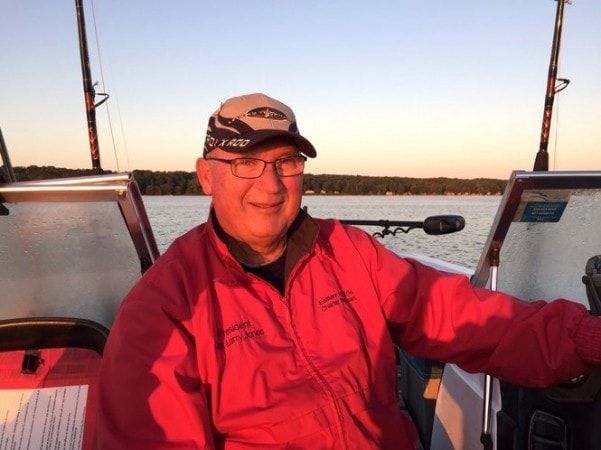
Larry Jones – USMC Vietnam Vet and Owner of Mostly Musky Charters
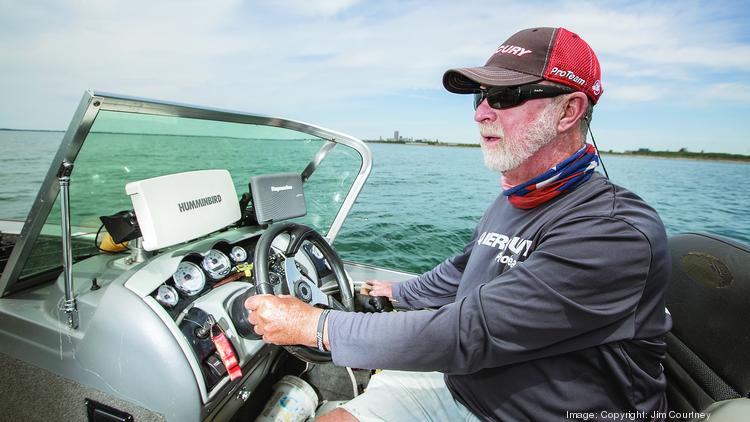
Jim Hanley – Local celebrity and one of the godfathers of the WNY charter business
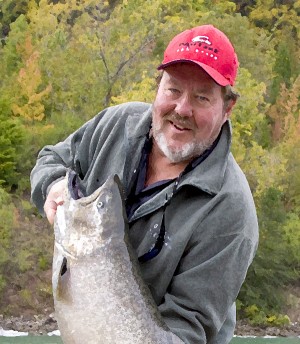
Bill Hilts – a lifelong proponent of the WNY fishery and author of the Outdoor Beat
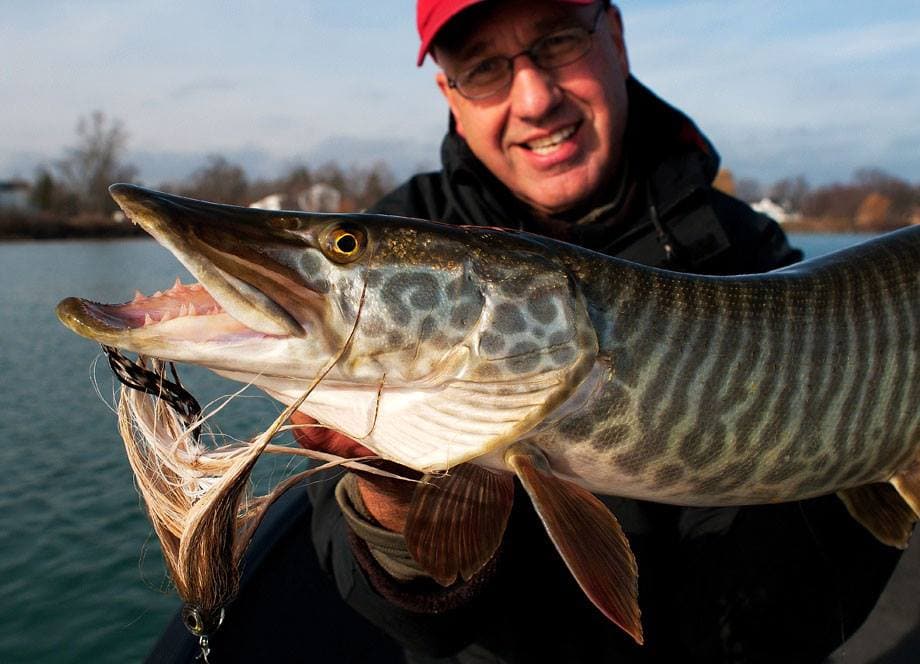
Rick Kustich – Author, Avid Fly Fisherman, Local Expert
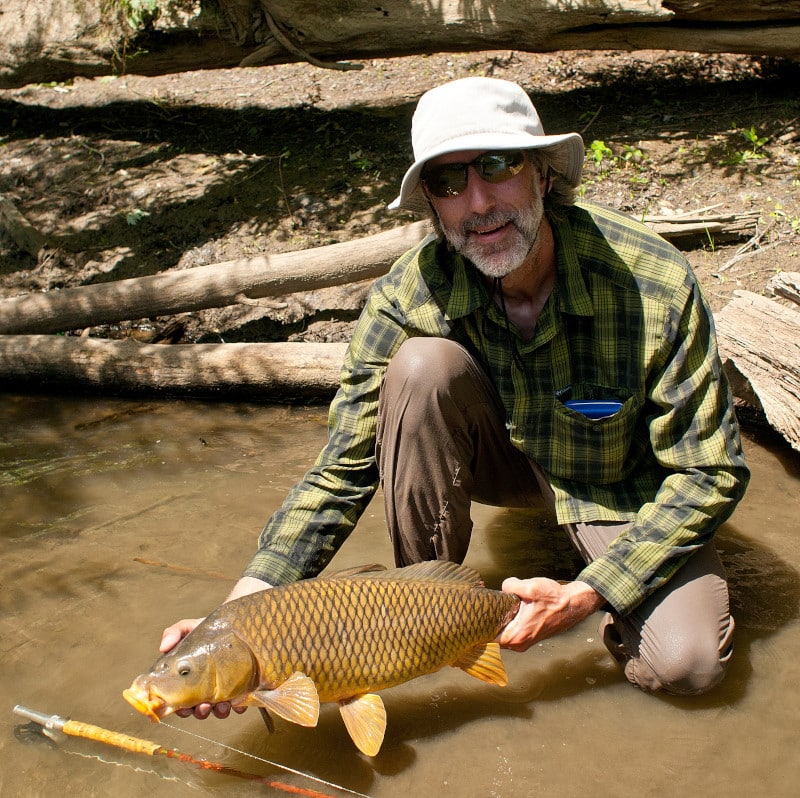
Nick Pionessa – local guide, professional fly tyer and casting instructor, regional expert
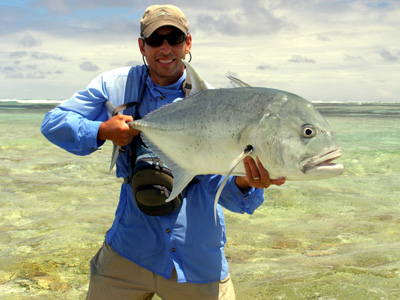
Vince Tobia – Owner of Cattaraugus Creek Outfitters
I mention all of these mentors not to kiss their ass but to give my peers who are just starting out someone to research/study as examples of how to be successful in this business. There are countless more guides/industry professionals that set an outstanding example in this business and all beginning guides should reach out to at least one for advice. If they are as passionate about this business as you are, they’ll be honored you reached out and will give you much to consider.
Affiliate Yourself With Reputable Organizations
This idea goes hand in hand with seeking out mentors. Organizations like the International Federation of Fly Fishers, Trout Unlimited, and the American Fly Fishing Trade Association offer great benefits to their members. Their sole purpose is to advocate for the industry and our environment and are a wealth of knowledge for those just starting out. These organizations have chapters all over the country who will welcome your membership and participation in their events.
Aside from these national/international organizations every state has something similar and often times more relevant to what you plan to do. From rod and gun clubs to charter captain consortiums to angling associations chances are your area has an organization who’s members represent generations of local knowledge and industry experience. Seek them out and network hard.
Volunteering is important as well. It will give you the opportunity to get in front of many people interested in fly fishing. It is a great way to help others in need while networking and developing your teaching skills. Project Healing Waters is a great organization to look into.
With the assistance of these types of groups, you’ll quickly develop a reputation and grow your client base. This will give you grounds to request pro-deal status with the various companies that sell the equipment you need. Rods, reels, lines, apparel, flies, etc. are all on the table for a steep discount if you qualify. Pick the companies you are familiar with and trust and remain loyal to them. In time, they will recognize your potential and will help your growth.
Be A Minimalist
Remaining humble, being responsible, and seeking guidance won’t cost you any money but will ensure you can earn it well into the future. Gear, the more tangible aspect of this business, can be extremely costly. If you work out of a shop, the temptation to buy everything on the shelf or all the latest and greatest gear is always there. That isn’t as much of a problem when you’re a lone wolf but us independent operators have the persistent challenge of making sure we have the right amount of everything – especially when there isn’t a shop nearby.
Although us fly anglers are notorious for tinkering and collecting, try your best to suppress these instincts for the first couple of years and just learn. If you are new to guiding but have been a lifelong angler, you might be thinking, “I already know my fishery extremely well, what else is there left to learn?” Here’s some perspective – you just made a career move that took you from fishing your drainage somewhat frequently (in the best of cases) to nearly daily. There is a ton more to learn. You went from taking friends out from time to time to complete strangers all the time. Again, there is a ton to learn. With all this in mind, acquire/buy gear as you go, not all at once.
Trust me; I know how difficult it is to fight the urge to buy a bunch of stuff you think you need. I was a logistics planner and supply chain manager in a former life when building iron mountains used to be cool. Internet sales, fly shops, big retail stores, etc. give you the ability to get what you need quickly. Be conservative when you first resource yourself and pick up what you need as the requirement emerges. Do your best to anticipate requirements but don’t rush into any big purchases. If you come up short from time to time, no problem! You learned from your shortcomings and still have money in your pocket. Now you can make a more informed decision about what to buy (or do) to avoid the problem in the future.
Fish Daily
Nothing replaces time on the water. Keep your eyes open, write things down/keep a log if you have to, and LEARN. Enough said.
Market Yourself and Push Quality Content – BUT – DON’T OBSESS
I am not a marketing professional. This is my first endeavor into this area of expertise. Here is what I learned – from both reading and experimentation.
1. Content is king – get a good camera and take quality photos and video.
2. Develop a social media presence – push the content you develop through all social media outlets. All your content should include a link back to your website or contact info. After all – your posting pics and articles to generate customers, not boost your ego. Pay attention to your analytics functions on the various apps and little more. If you think the majority of people are paying attention to what you’re putting out – THEY AREN’T. See Below:
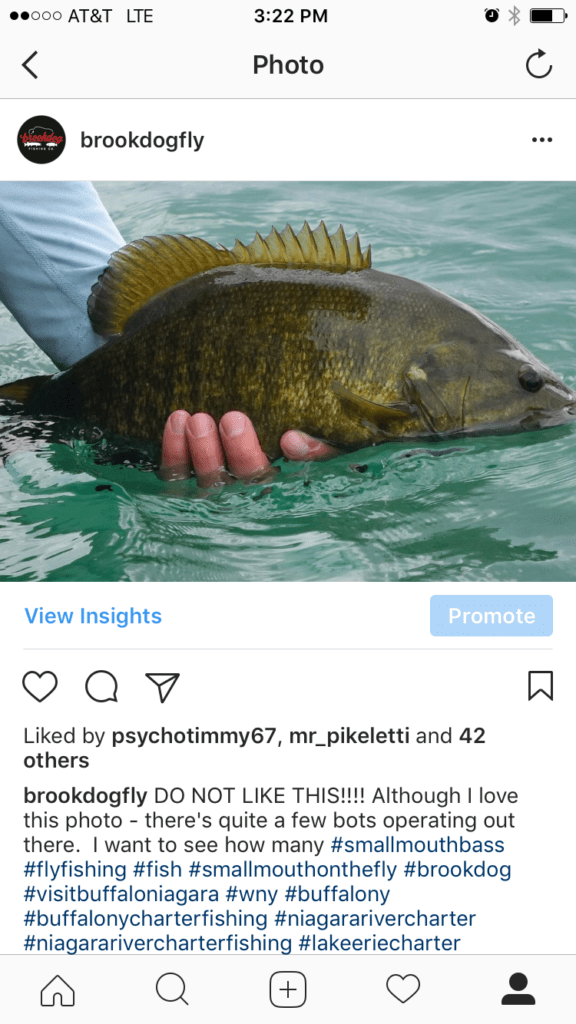
DO NOT LIKE! Yet, many still do. Who’s truly paying attention?
3. Develop a brand image – get business cards, have a logo built, make some tri-folds/pamphlets, etc. Use the same colors and scheme throughout every product you develop and tweak it over time to keep it fresh.
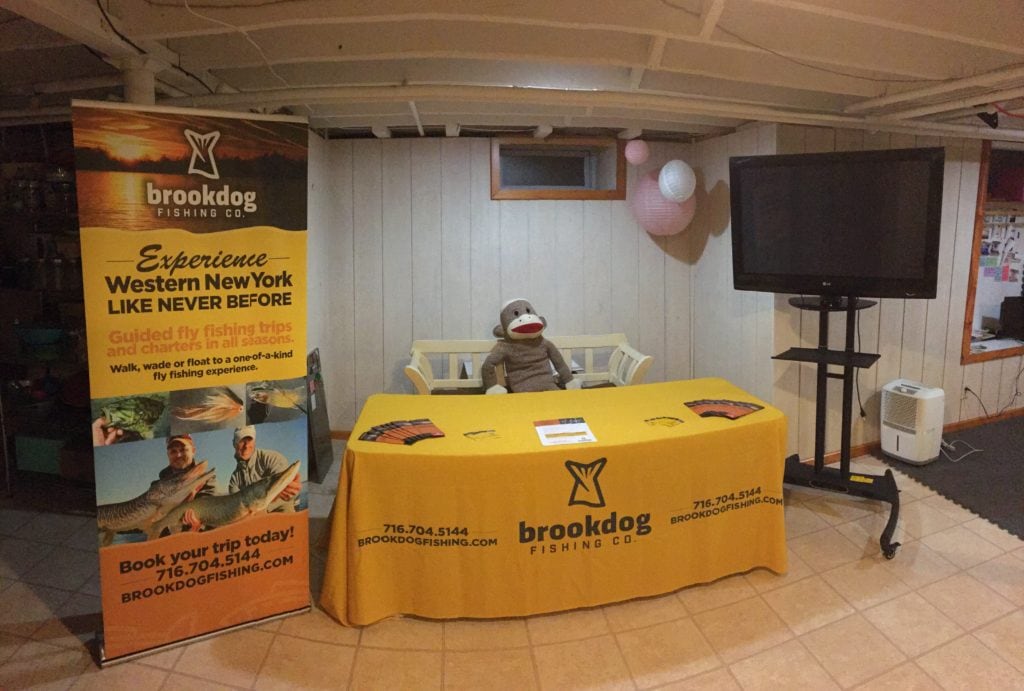
A mock show set up in the basement
4. Marketing takes time and/or money – plan for it. Treat it as a fixed cost and part of your daily rhythm. It’s free if you generate your own content and post it to social media. However, it takes a lot of time and can be a pain if you start tweaking out. Your other option is to pay someone (like a marketing firm) or something (like Facebook, Instagram, or Google Ads). There are infinite ways to market yourself – your creativity is your only limit. Just remember to budget for all of it or you’ll be left wondering why you aren’t getting calls from clients.
5. Don’t obsess – social media can suck you in. Realize that most people use it as kind of a drug. You have to put yourself in a different mindset when you approach social media. Your time is money – do you really want to spend it tweaking out for hours on social media?
Bottom line
When you’re a newbie, you’re going to make mistakes. Remain humble and seek self-improvement. People that have been in this business for a while know the struggles of starting out. They will expect you to mess up occasionally. Those same people should help you grow from your mistakes and if you connect with the right mentors, they will. Find a good mentor and stay in touch. Those mentors will also advise you on equipment purchases – what works and what doesn’t. Use their advice and your experience on the water to make informed decisions about how to equip your program.
Last but not least, have fun. You made a bold decision to go this route. It’ll be a roller coaster of emotions that will change with the weather and conditions on the water. Just center yourself with your passion for what you do. Many people will envy or respect your decision. If you’re going about it the right way, they have every reason to feel that way.

Well written article Ryan!
Very sound advice. stay the course, keep doing what you love and good things will follow!